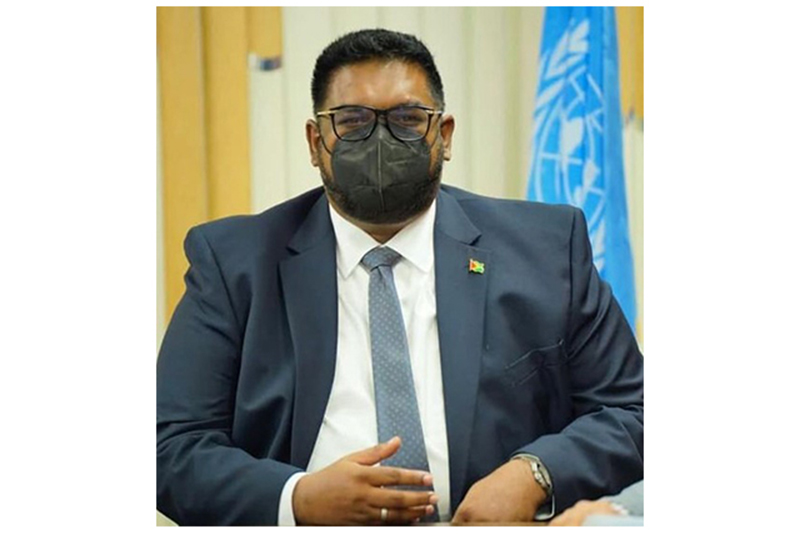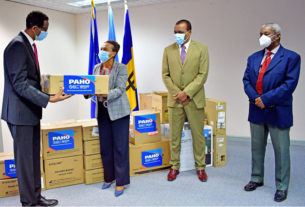STAFF WRITER GUYANA INFORMATION SERVICE
September 25, 2021
– Says the use of GDP per capita for developing nations is inadequate
His Excellency Dr. Irfaan Ali on Friday said that Guyana fully supports the development of the Multidimensional Vulnerability Index (MVI) to aid Small Island Developing States (SIDS), since the current system of using GDP per capita is inadequate.

He gave his support via video message at a high-level side event on the UN Secretary-General’s report regarding the MVI for SIDS.
The Head of State pointed out that even some of the world’s largest, advanced, diverse and resilient economies have been struggling to cope with the fallout from the COVID-19 pandemic. This fallout, he said, has had a worse effect on SIDS in the Caribbean and the Pacific that are dependent on tourism and other affected sectors for their Gross Domestic Product (GDP), export earnings and employment.
“SIDS had to contend with a pandemic that has pushed public health systems to the brink, and that has brought entire economies to standstill.”
The President noted that Guyana welcomes the renewed attention being paid to the development, finalisation and use of the MVI.
“Against this background, Guyana strongly supports the call for work on developing a robust and credible MVI be brought to a timely conclusion and finalisation, and Guyana urges strongly that we move swiftly as a global community to incorporate the MVI into the framework for determining eligibility for development support, especially concessional support.”
The President said that the renewed attention to the MVI comes after three decades of advocacy of the development of such an index to be put to use, especially in determining the eligibility for International Development Support.
In essence, a MVI will allow for the inclusion of more than just income-based criteria to assess eligibility for concessionary finance.
“We are long past the stage of recognising the inadequacies and shortcomings of using a single limited metric, such as GDP per capita as a measure of development status, and needs. The international community recognises the inherent, archaic and often perverse results that arise from the use of the single measure to determine a country’s eligibility for development support.”
He pointed out that a perusal of the Secretary-General’s report shows that it is patently obvious that a single matrix such as GDP per capita is totally unsuitable for determining support to SIDS.
President Ali reminded the Summit that in 2005 Guyana experienced a devastating flood that caused damages equalled to 59% of the country’s GDP at the time, and in June this year, he was forced to declare a national disaster after record levels of rainfall inundated large swathes across the country.
“I hasten to add that even though I highlight the events of 2005 and 2021, floods are not a one in a twenty-year event for Guyana. Every year one community, or another, in Guyana, feels the brunt of extreme weather events, facing either floods caused by heavy rainfall or coastal inundation caused by high tides and rising sea levels. For us in Guyana, vulnerability to climate change is not an abstract concept that we read of or a future prospect that may or may not materialise.”
The President emphasised that climate change is a current, ever-present, reality that citizens of Guyana and other Low-Lying Coastal Developing States and SIDS face on a daily basis.




